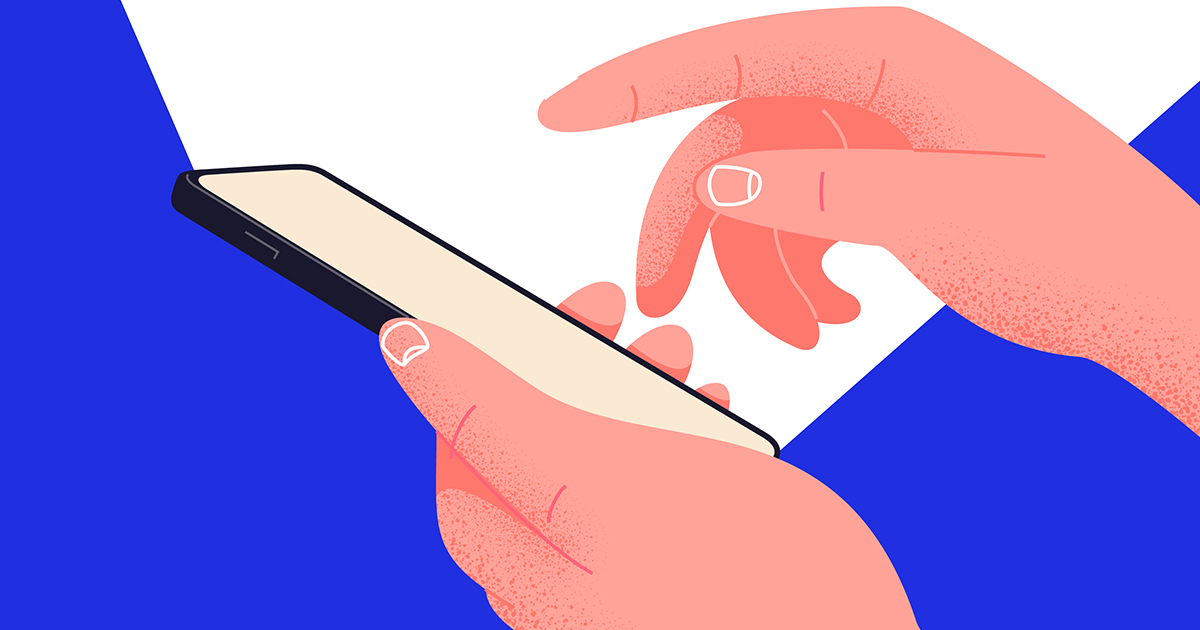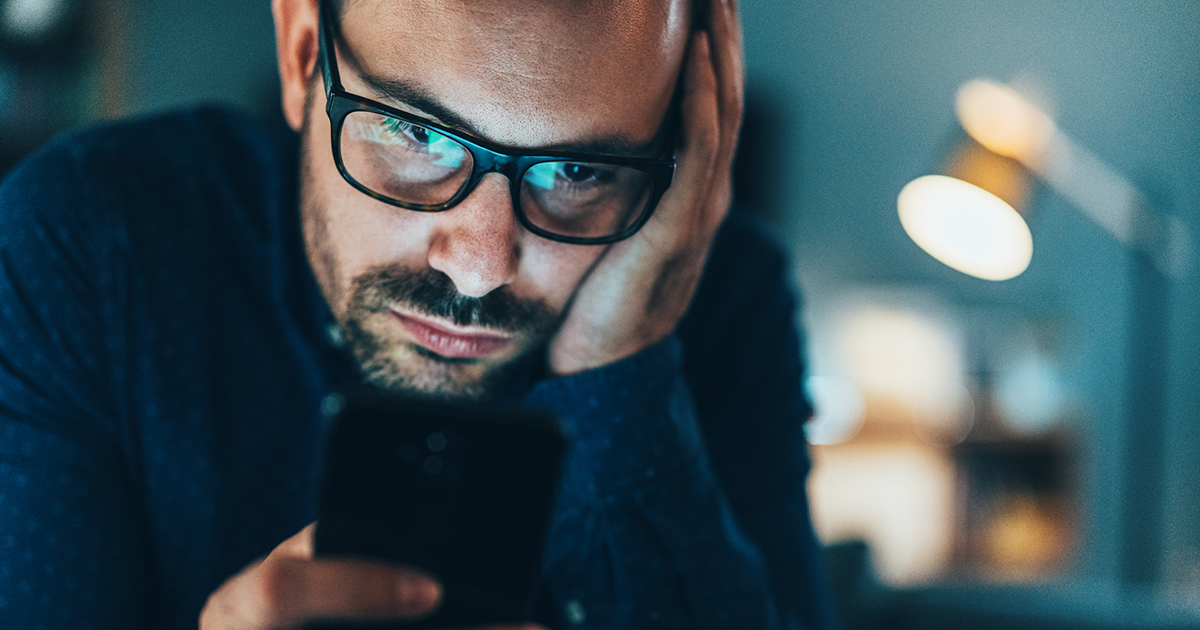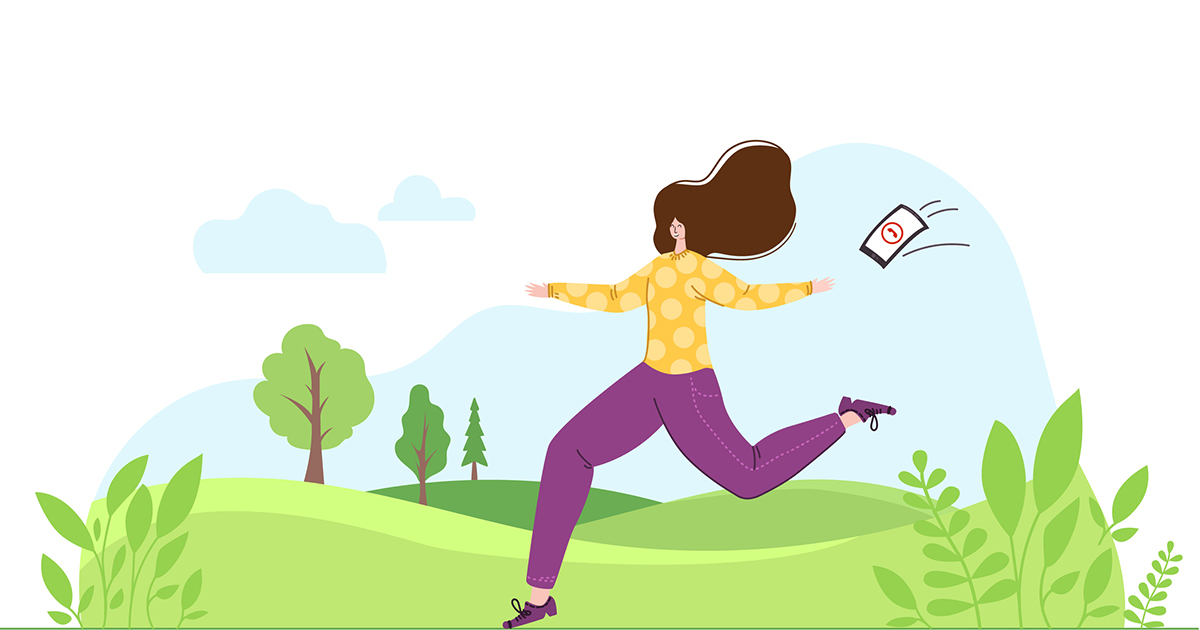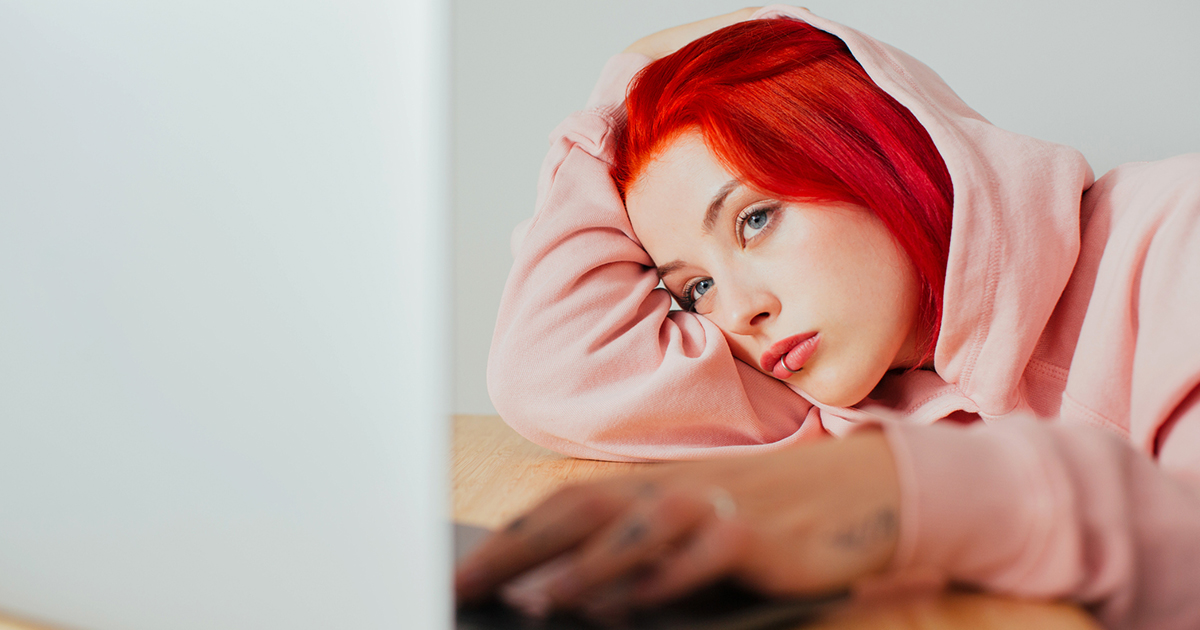Traditional media outlets like TV news and newspapers can be outright depressing. The only news the local television stations seem intent on covering are sports, weather (which they seem to always to get wrong- especially here in Albuquerque), but mostly they cover crime. If you are constantly consuming and worrying about the sensationalized news they show on TV, you might be too scared to go outside.
Today television viewership is down significantly, but social media usage is higher than ever. Research conducted by Informate Mobile Intelligence found that Americans on average check social media 17 times a day and spend anywhere from 1 to over 4 hours a day looking at various social media platforms. FOUR. HOURS. You know what you can get done in four hours? A lot.
If a half-hour of news could depress you, what about hours of Facebook, Instagram, Twitter, TikTok, and all our other apps?
Currently, we are in an unprecedented pandemic. The risk of contracting the dangerous virus that is COVID-19 has put us in the position that we need to rely on social media to stay connected to our friends and family during these times of social distancing. Corona Virus has almost forced us to be dependent on social media to get that much needed human interaction we all crave.
Does Social Media Cause Depression?

Studies show that spending a lot of time on social media can cause anxiety and depression in many people. A research team from the University of Pittsburgh found that those who checked their social media most frequently were 2.7 times more likely to be depressed compared to those who checked less often. Those who spent the most amount of time on social media throughout the week had 1.7 times the likelihood of depression. For the complete study from the University of Pittsburgh, you can click right here.
Personally, I find Instagram to be the most toxic of the apps. This platform is where people tend to post images of themselves in the best light, doing the most exciting things, edited in a way that makes everything look effortless. IG makes you feel like you’re not enough, which may stir up anxiety. Everyone appears flawless and seems like they’re doing amazing things with their lives, and you might start to think “Why aren’t I?” Then you start to get down on yourself because you’re comparing your day-to-day life to someone’s highlight reel. This is an unhealthy mindsight to have considering that everything on “the Gram” is kind of fake. Keep in mind that photo editing software is more accessible now than ever before. You shouldn’t let an influencer’s FaceTune be the standard for how you’re supposed to look.
So, what’s the cure for this social media obsession? It’s so simple. Well, it’s simple but not easy. It turns out that the cure is to turn it off! Put the phone down. Go do something else.
Why is Social Media Damaging My Mental Health?
Social media apps are strategically developed by trained psychologists who know how the human brain works. They know what will make you hop on those apps every day and continue to scroll for hours. Every time you get a little notification of a like, a comment, or a follow, it triggers dopamine or pleasure chemicals in your brain; kind of like how drugs work to get you hooked. The reason they design them this way is because the more time you spend on these platforms, the more ads you see. The more ads you see, the more money they make.
TikTok is a newer video-based app that has exploded over the last couple of years. The creators of TikTok developed a pretty genius (or evil, depending on you look at it) algorithm. The algorithm picks up on things you like based on what you watch and how long you view a video to determine what to show you next. Once they know what you’re into, the app shows you videos based on all the stuff you’re interested in, keeping you fully engaged in the content, video after video. Suddenly you’ve spent 3 hours watching TikTok without even realizing it. If you don’t want to get sucked into the black hole that is scrolling not only on TikTok but any social platform simply… do not scroll.
How Do I Cut Back on My Social Media Usage?
Our clinical director, Lana, conducted a little experiment where she deleted all the social media apps from her phone for a week. She even took the extra step of downloading a website blocking app on her computer. A simple Google search will reveal a variety of blocking apps if you’d like to do the same. The program she used for her PC is called Cold Turkey. Lana said, “I found that at the end of the week, I was much less distracted and in better spirits.”
Not prepared to log off and delete just yet? Try changing some settings around to gain some control over what you see. This may not help with the constant scrolling problem, but it might at least help your mental health. Unfollow people that make you feel icky. Maybe there’s a person you compare yourself to and they make you feel bad about where you are in life. Maybe there’s someone who is always trying to sell you stuff (that friend from high school that joined a pyramid scheme? Block them). Maybe there’s a racist uncle that makes you angry every time he posts. Unfollow, unfollow, unfriend. Peace of mind is just one click away.
Another way to take a step back from social is to disable notifications from social media sites. If you’re not getting a notification every time someone likes your posts, you won’t be tempted to constantly check it. Still can’t deal with that temptation? Try turning off your phone during parts of the day when you don’t need to receive calls or texts.
Since Facebook is one of the most popular apps, let’s focus on changing the settings to turn the corner. Facebook uses a fairly complex algorithm that determines your feed. There are specific ways to customize it to your liking. This Mashable.com article lists a number of ways that you can customize your Facebook feed. Find it here.
This Facebook Article Shows You How To:
- Change the news feed from Top Stories to Most Recent.
Facebook uses a complex algorithm to decide what is most important. But that algorithm takes into account factors other than your personal likes. Changing the sort order to most recent will just give you the latest posts. - Mute A Friend.
This allows you to stop seeing posts from those friends that maybe have a little too much time on their hands. Muting a page does mostly the same thing as muting a friend except that it is specific to a business or organization. - Mutie an Application.
Tired of seeing those invitations to Candy Crush? You can get rid of them. - Edit Your News Feed Settings.
This also hides unwanted posts in your feed. - Manage Subscriptions.
If you don’t want to completely hide a friend’s posts, but you don’t need to see how far they’ve progressed in Farmville or how well they’re matched on Tinder, then you can check or uncheck specific types of posts. - Managing Subscriptions Globally.
Going through each one of your friends to change subscription settings would be a huge waste of time, you can do it all at once through global subscriptions.
These are a few of the options Facebook has made available for us to enjoy social media to our liking. It takes a little effort, but the rewards are great. And don’t forget, if it gets too consuming, just unplug!
Too Much Social Media Might Be Bad for Your Mental Health
Social media can be a source to make and keep connections, communicate new ideas, build communities, share important information, and it can be used as a creative outlet. While social media has many benefits and it has allowed us to stay connected during these difficult times, it’s important to acknowledge the negative impact it can have on your life, and your mental health. Try to cut back on your social media usage, and your screen time overall.
We now have this handy feature on many smartphones that allows us to track exactly how much time we spend on our devices and how long we spend on each individual app on a weekly basis. I challenge you to cut back an hour of screen time this week. Do something that makes you happy or relieves stress with that hour that you typically spend on social media. Little by little, we can develop a healthier relationship with social media so it’s not taking over our life and damaging our mental health.
*Note from Editor: this post was originally posted on February 6, 2017 and has since been rewritten and republished.


